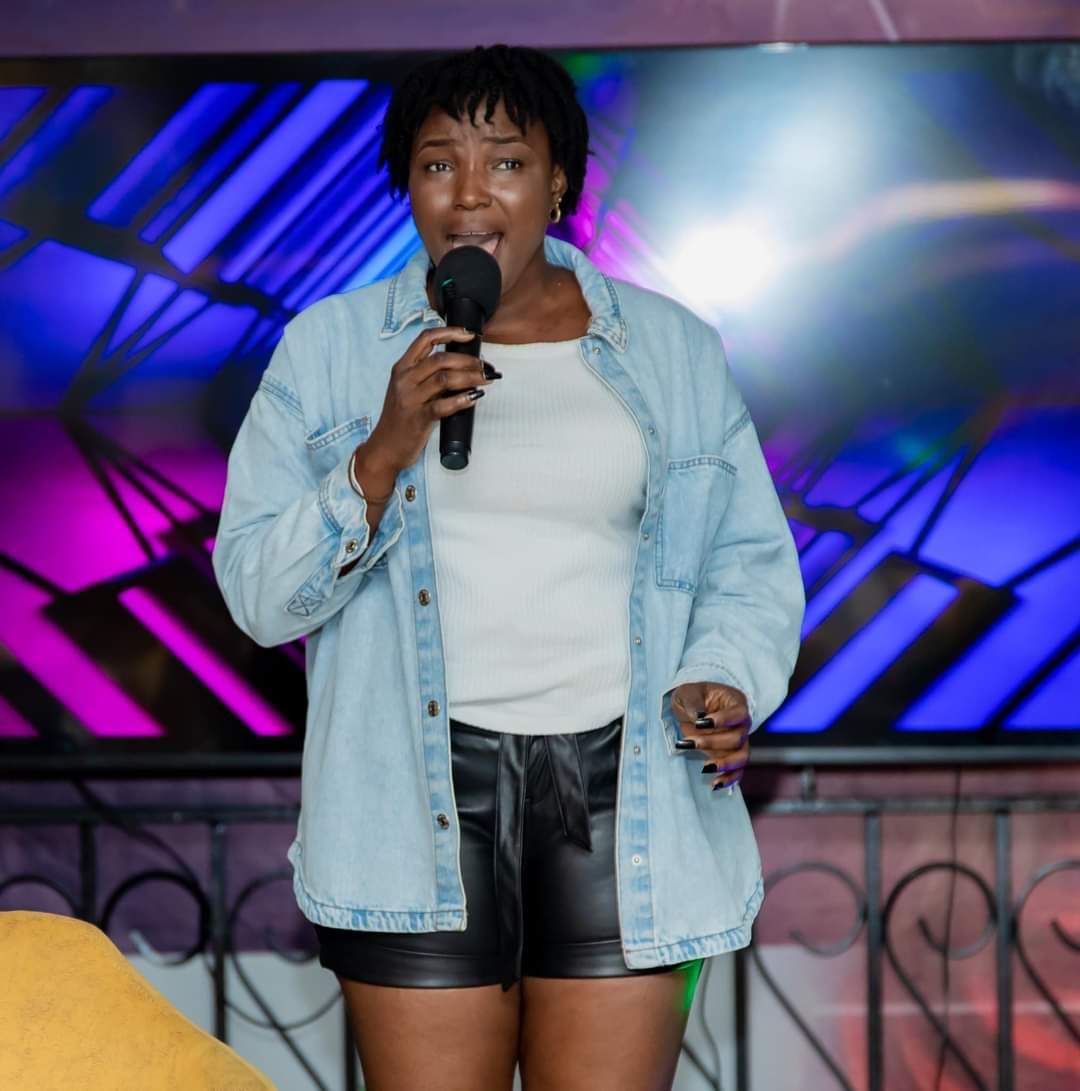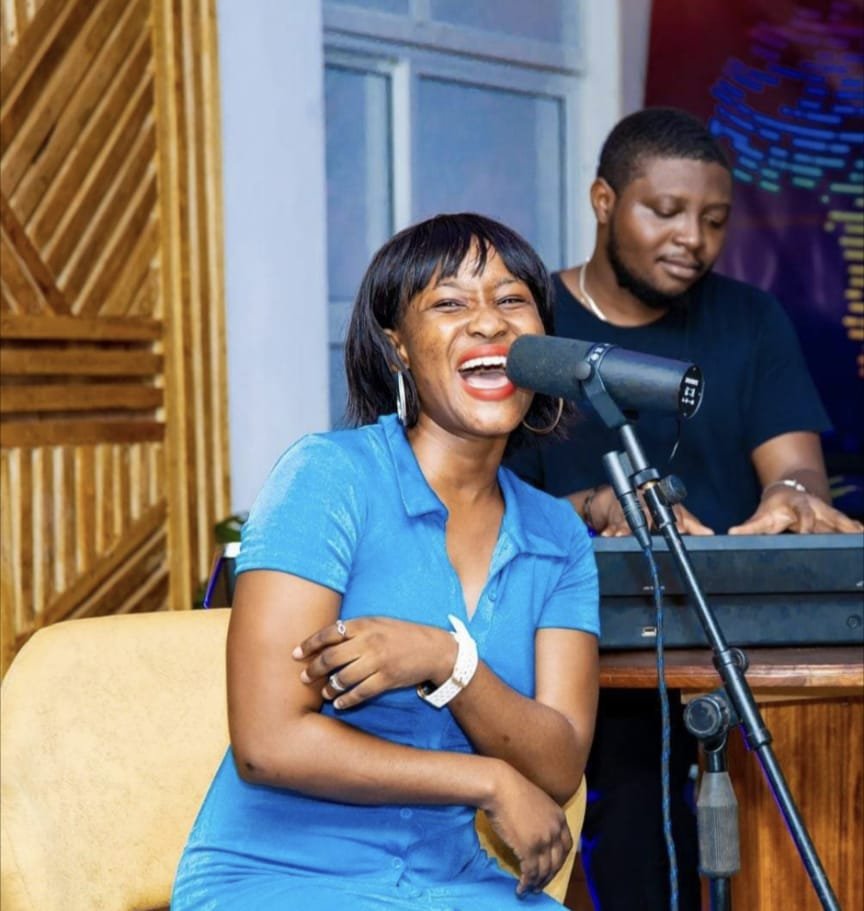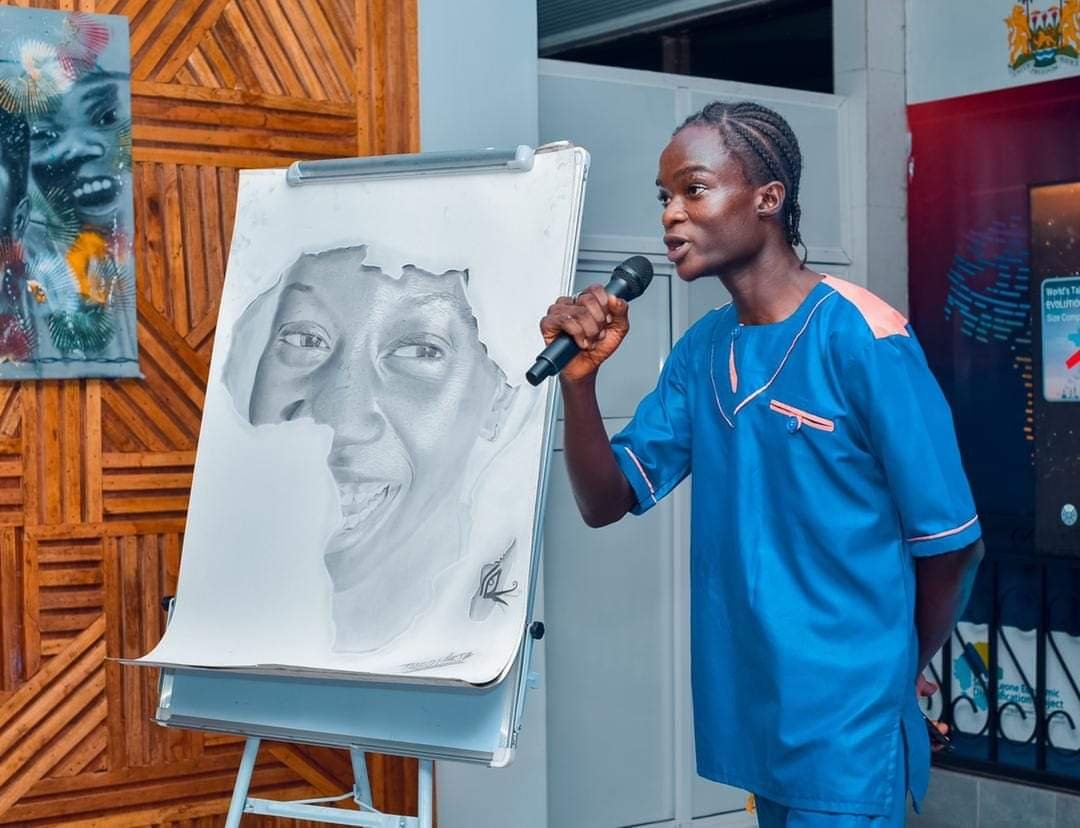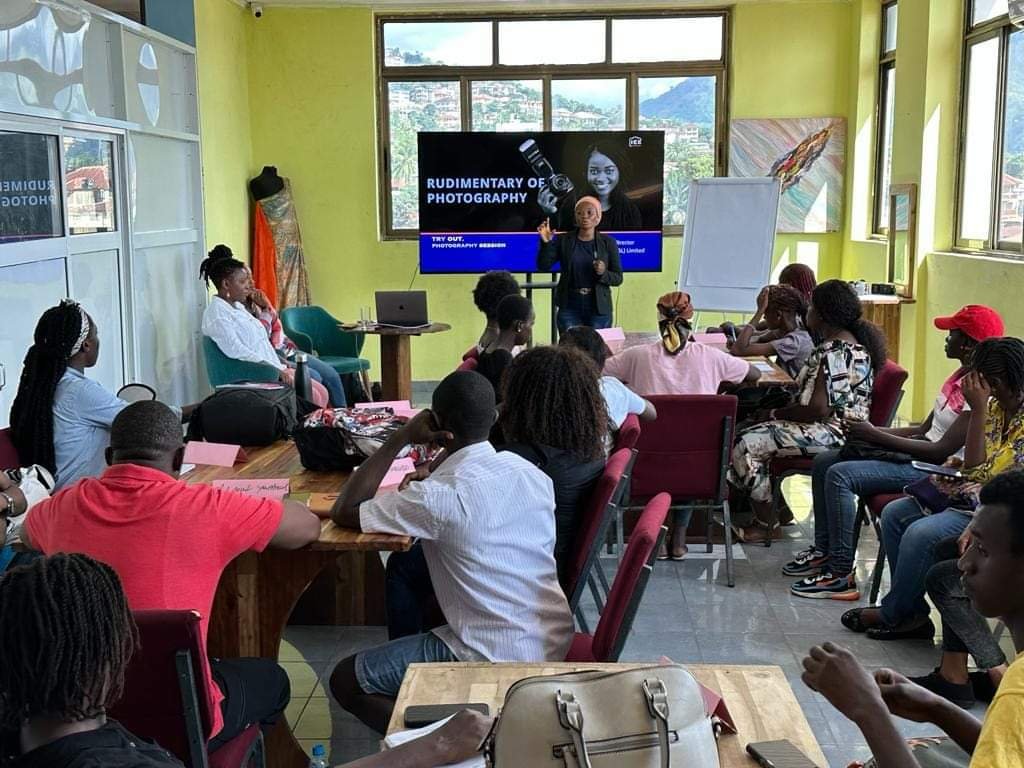Isatu Harrison on Building Creative Spaces in Sierra Leone
Creative Hub Africa is a space in Freetown where creatives learn and connect with each other and explore potential markets for their creative businesses. The founder says their goal is to unlock the creative potential and build an entrepreneurial mindset in Sierra Leone's growing youthful population, which is almost 80% of the country's population. The hub also hosts creative events like open mic nights, which bring together poets and writers. Poda-Poda Stories Fellow Josephine Kamara interviewed the founder and CEO, Isatu Harrison, about the importance of creating such a space in Sierra Leone and how it all started.
Isatu Harrison: I was invited to a creative space in the UK. I was so inspired by it as it was such a bold space and I imagined having something like that in Sierra Leone. When I moved back home, I started off with the Izelia factory, a fashion company, and the impact we had on young people was huge. More young people kept approaching me and my team to come to the factory to work. So, we started working with creatives in the Izelia factory and that was because we have a little bit of space that we could play with. And that's how the Creative Hub started.
Josephine Kamara: What gap in the creative ecosystem were you aiming to address?
Harrison: I thought it was important to have a space sharing and creating opportunities for people that want to pursue creative careers. This is a hub for ceatives with ideas who are looking for a space where they can go and flourish and flesh out their ideas out work on them. And this is the gap the Creative Hub is trying to fill – providing a home for all of them.
Kamara: You mentioned something about infrastructure, when you stated that systems for creative people work in the UK and in Sierra Leone, it's almost non-existent or even if it's there, we're not well-structured. Please comment on the creative infrastructure in Sierra Leone.
Harrison: Because most of the population are young people in this country, there is dire need for nurturing ecosystem for them to birth their dreams. When I came back home, the only space that I found was Ballanta Academy. Ballanta has been around for 24 years, so I won’t say nothing exists, but the infrastructure is small. For the Creative Hub, we got a grant from the World Bank and the Government of Sierra Leone. We had a $50,000 grant and I matched that with personal funds. I have no regret in doing it because every day people go into that space to dream, to do creative work, to share their work. I don't have the words to explain how it makes me feel.
Kamara: As you emphasise the importance of providing infrastructure for growth, could you elaborate on the specific resources and support that the hub offers to young creatives in Sierra Leone?
Harrison: So when you go into the space, we have what we call the design space, and that design space is really the space for creatives to get their work done. So we have all the graphic design software loaded on computers so you can do, you know, practice your graphic design. Whether you are an aspiring entrepreneur or just at the ideation stage, we have expert advisors that work with you to develop that idea and turn it into an actual business.
Kamara: We always say that as Sierra Leoneans, we need to tell our stories more. I've attended some of your events, and I've seen great storytellers and poets there. Can you comment more on specific support for young people who use this art form to express themselves.
Harrison: What we want to do next is connect is connect young writers to writers’ programs and workshops. We have a few people interested in working with writers, and we're planning our first MasterClass. On that note, we have some visitors coming this month. I don't know if you've heard of Fela, the play? They have Broadway shows in New York, and the writers have some connection to Sierra Leone. They are really interested in meeting young writers, poets, young people in that sector. They're having a master class possibly on the 21st or 22nd of December. I feel like we have a lot of wealth in terms of writers and directors in the diaspora, and if we connect them with local talent, it could be amazing.
Creative Hub Africa offers a space for young people in the creative sector to network and learn.
Kamara: Oh, that sounds exciting! Are there more initiatives like this within the hub to mentor and give visibility to the creatives that makes use of the Hub?
Harrison: Every last Friday of the month we organise an open mic nigh and we select three people from each performance night. We then connect them to mentors at Ballanta Academy. We also want to get more people involved in the process. Starting this month, people in the audience can vote, and we'll select our top three. Once we have those three people, we're making contacts in Nigeria with CC Hub in Nigeria. CC Hub stands for Co-Creation Hub. It's a creative hub based in Nigeria and present in Kenya. They've been in the space for over 10 years and understand how the creative space operates. They have many opportunities that we don't have access to here. The creative sector is still very young in Sierra Leone, and it's at a stage where we all need to come together to establish it. So, we are collaborating with organisations like CC Hub to help us nurture creatives from Sierra Leone, starting with those from the open mic sessions.
Poda-Poda Stories Fellow Josephine Kamara(L) and Founder of Creative Hub Africa Isatu Harrison at her home.
Kamara: Why is it important for a Hub like this to exist in a country?
Harrison: The trend happening globally is that the creative sector is the fastest-growing economically. In Sierra Leone, either due to lack of awareness or conscious decisions, we haven't prioritised or focused on developing the creative sector. There's so much that can be gained from it, and the space we're creating has a fundamental purpose. It's not just about creating a safe space for creativity but also about formalising it. There's tremendous potential in the creative sector, and we are working and hoping to collaborate with the government and partners to make them realise the significant impact it can have on our country.
Creative Hub Africa offers a space for young people in the creative sector to network and learn.
Kamara: Everything sounds so peachy, but I’m sure challenges exist. Do you want to share some for the people who are interested in learning more about what it takes to build this creative infrastructure in Sierra Leone?
Harrison: I’ll start with the most recent event. So, for Christmas, what we decided to do was bring female entrepreneurs to showcase their products. So, I thought, why not bring these women together and try a digital market where we only accept cashless transactions.
This way, we can introduce them to different technologies available that they can use in running their day-to-day business. We also brought the idea of reducing single-use plastics. Instead of using plastic bags, we encouraged them to use fabric bags. We even created cost-effective fabric bags for them to use for their customers. It's an eco-friendly approach and encourages the use of reusable bags.
Yesterday was the launch of that market (referring to 7th Dec.), and it wasn't without challenges because people aren't used to going anywhere without cash. The shift to mobile money or card payments was very challenging. I think it's the first market of its kind here, that was completely cashless and plastic free.
It was so challenging. People were complaining that the mobile money was not working, but by 6:00 PM, most people were making payments by mobile. I realised what we need in Sierra Leone is to guide people through change. Internet connectivity is another thing we as creatives are gravely challenged with in Sierra Leone.
Kamara: Looking ahead, what are your dreams and aspirations for the creative hub?
Harrison: If we make this a priority, within the next two years we would see so many changes within the creative ecosystem and we would see a lot of creative careers thriving in Sierra Leone.
Josephine Kamara is a Poda Poda Fellow, Feminist Activist and Storyteller who writes to know and share her well-rounded human experience. She is currently a MA candidate at the Institute of Development Studies – University of Sussex, UK.





